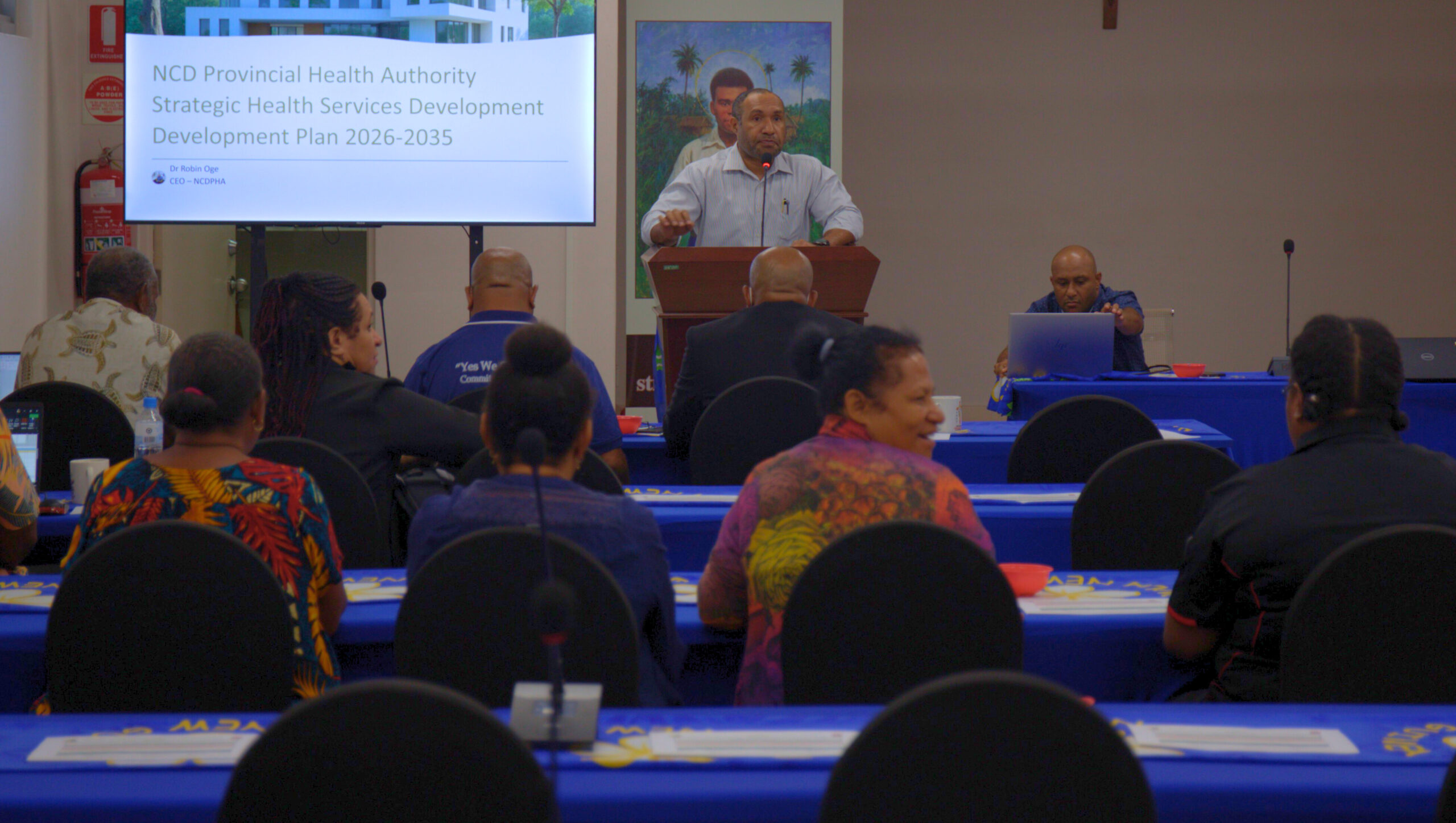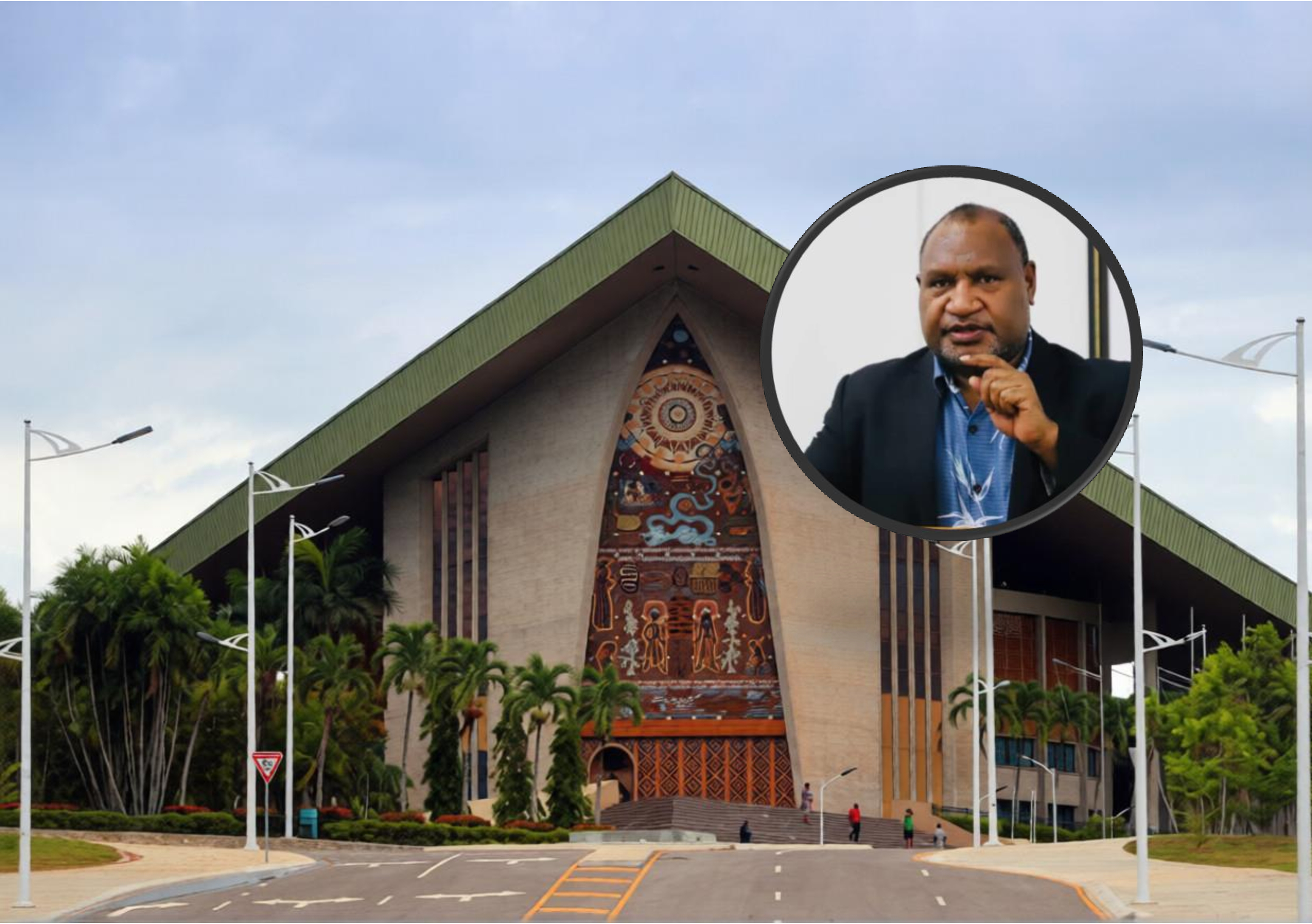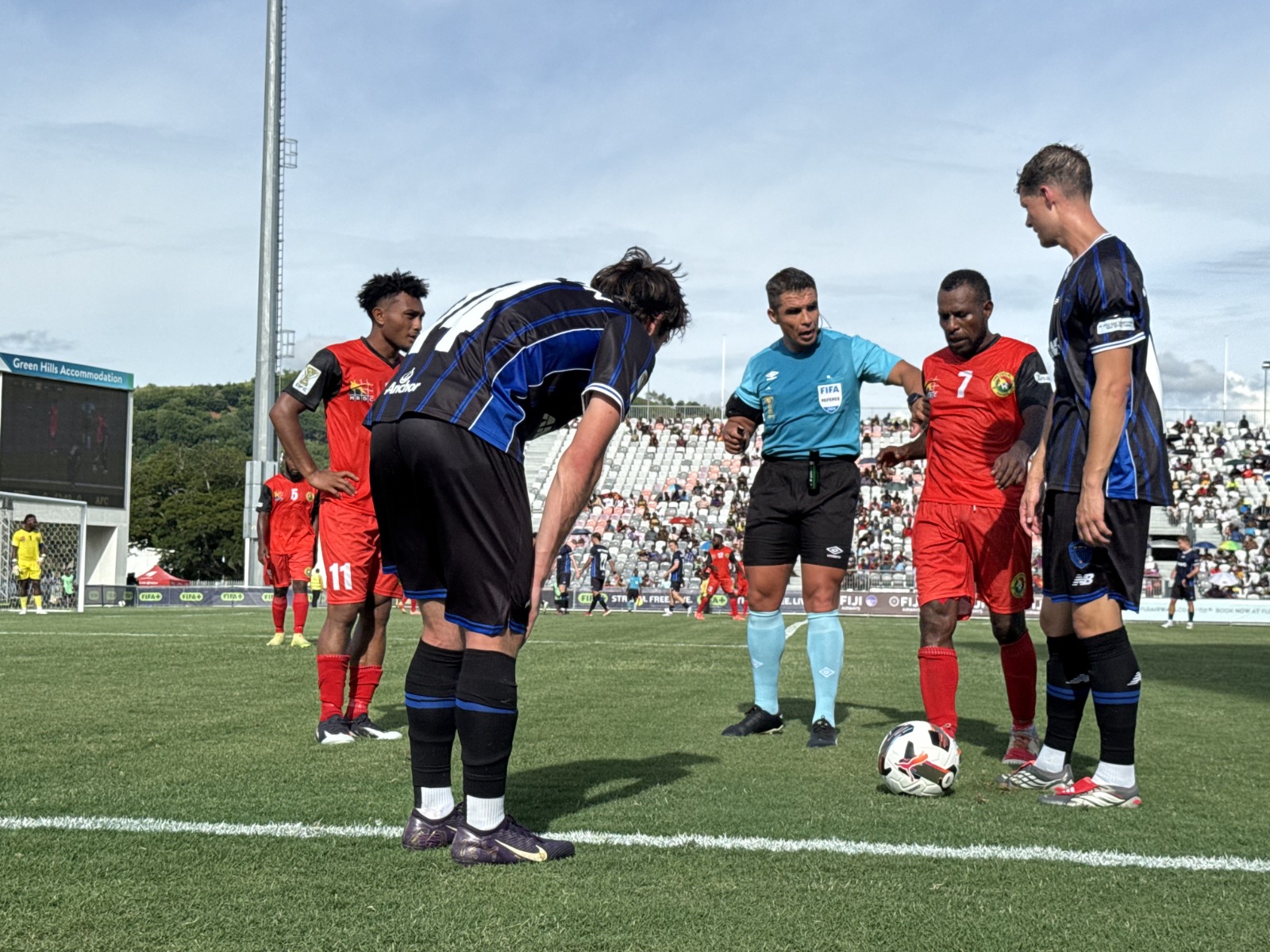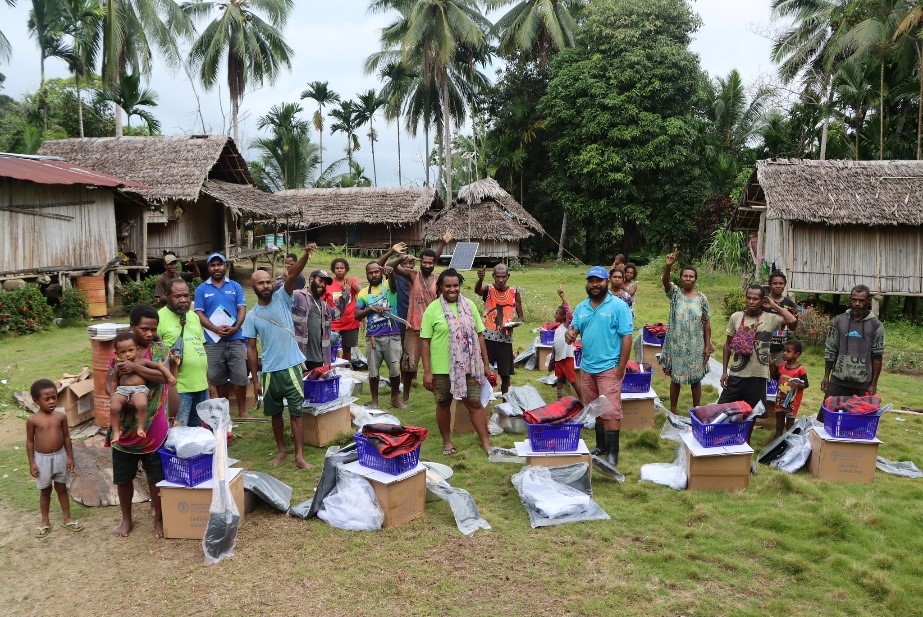 These groups all have already received tailored training on cocoa bud grafting and block management organised by the Programme in collaboration with PNG Cocoa Board and Department of Agriculture and Livestock officers in the districts and LLGs . The skills acquired during these trainings assist the farmers to enhance their cultivation, farm management and harvesting practices.
The 90 registered cocoa groups of over 45,000 farmers have started propagation of cocoa bod borer (CPB) tolerant seedlings in their respective nurseries. The Programme will continue to support them, whereby each group will have their seedlings purchased and distributed to their respective members or farmers including youths and women for free.
These groups all have already received tailored training on cocoa bud grafting and block management organised by the Programme in collaboration with PNG Cocoa Board and Department of Agriculture and Livestock officers in the districts and LLGs . The skills acquired during these trainings assist the farmers to enhance their cultivation, farm management and harvesting practices.
The 90 registered cocoa groups of over 45,000 farmers have started propagation of cocoa bod borer (CPB) tolerant seedlings in their respective nurseries. The Programme will continue to support them, whereby each group will have their seedlings purchased and distributed to their respective members or farmers including youths and women for free.
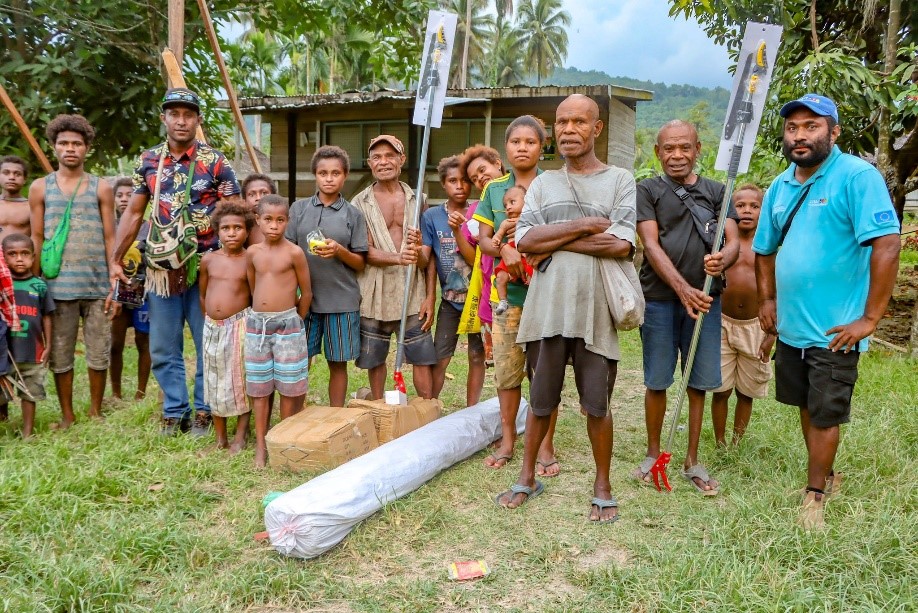 “I want to say thank you to STREIT PNG and the financiers of this Programme the European Union. The trainings we attended, we will now put into practice using these tools and materials,” said Mrs Maureen Mombi, whom with her husband Ben are organizing and supporting three farmer groups of 1500 members from Mushu Island, Hambraure Village (Wewak District) and Hambini Village (Ambunti-Drekikier District).
For the vanilla value chain, the Programme has distributed 120 sets of vanilla cultivation, husbandry and processing tools including shovels/spade, gumboots, pruning baskets, harvesting knife, cooking pot, cooler box, strainer, thick clot, digital thermometer, kraft/wax paper, plastic canvas, and cardboard box to the farmers in 11 villages of Wewak District and 4 villages of Aitape/Lumi District.
“I want to say thank you to STREIT PNG and the financiers of this Programme the European Union. The trainings we attended, we will now put into practice using these tools and materials,” said Mrs Maureen Mombi, whom with her husband Ben are organizing and supporting three farmer groups of 1500 members from Mushu Island, Hambraure Village (Wewak District) and Hambini Village (Ambunti-Drekikier District).
For the vanilla value chain, the Programme has distributed 120 sets of vanilla cultivation, husbandry and processing tools including shovels/spade, gumboots, pruning baskets, harvesting knife, cooking pot, cooler box, strainer, thick clot, digital thermometer, kraft/wax paper, plastic canvas, and cardboard box to the farmers in 11 villages of Wewak District and 4 villages of Aitape/Lumi District.
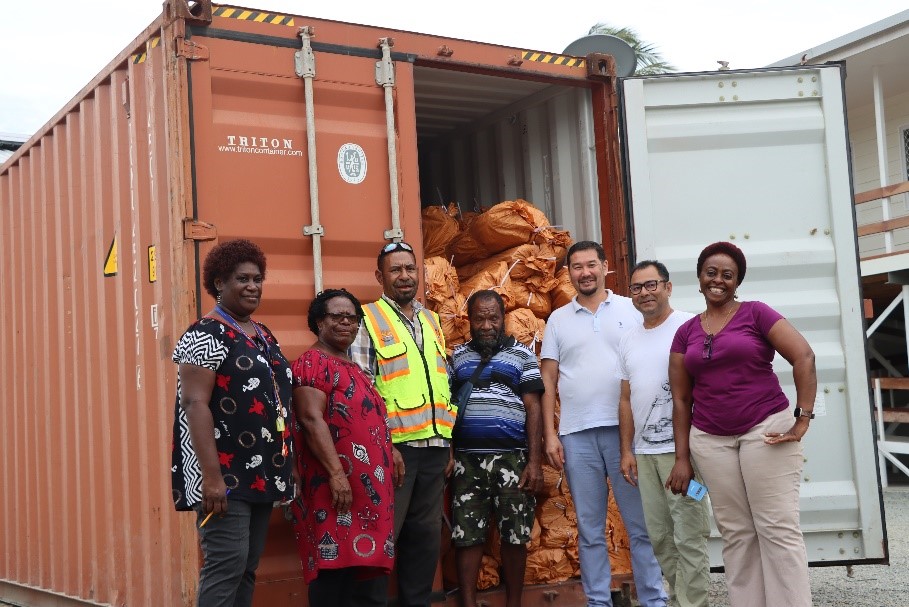 6 Vanilla vines treatment shed with a 10,000 vines capacity has been established. The vanilla kits and sheds in total so far is supporting more than 4000 men, women and youths in rural Sepik.
“The transfer of knowledge and skills to farmers and their families is an important extension activity that must be supported with tools and materials. Under the Programme we distributing these items as well with new technology to improve their practice,” explained Programme Coordinator Dr Xuebing Sun. “Tools and materials are vital link in adoption of technologies for sustainable farming systems which is being encouraged under the Programme,” added Dr Sun.
6 Vanilla vines treatment shed with a 10,000 vines capacity has been established. The vanilla kits and sheds in total so far is supporting more than 4000 men, women and youths in rural Sepik.
“The transfer of knowledge and skills to farmers and their families is an important extension activity that must be supported with tools and materials. Under the Programme we distributing these items as well with new technology to improve their practice,” explained Programme Coordinator Dr Xuebing Sun. “Tools and materials are vital link in adoption of technologies for sustainable farming systems which is being encouraged under the Programme,” added Dr Sun.
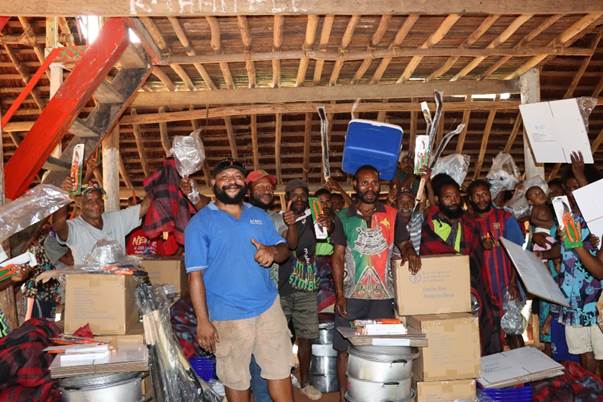 Among the recipients were 1000 plus farmers from four remote communities of inland Turubu area in Wewak District, East Sepik Province. On behalf of youths and women in the village who will also benefit from this intervention, Brigitte Kamiresa, a mother at Mundangai Village, said: “I want to thank European Union. We mothers didn’t attend big schools so our youths or kids will help train us to use these tools and materials to improve our practices.”
The national technical officers of cocoa and vanilla value chain have also explained on the local radios the distribution of tools and materials for farmer groups/clusters that have already been formalised and are supported under the rural agriculture development programme. “If you have transport, please come to the office at Wharf Road. For those in hard-to-reach areas, we will come to you,” said Mr Michael Lames, National Cocoa Value Chain Officer.
Among the recipients were 1000 plus farmers from four remote communities of inland Turubu area in Wewak District, East Sepik Province. On behalf of youths and women in the village who will also benefit from this intervention, Brigitte Kamiresa, a mother at Mundangai Village, said: “I want to thank European Union. We mothers didn’t attend big schools so our youths or kids will help train us to use these tools and materials to improve our practices.”
The national technical officers of cocoa and vanilla value chain have also explained on the local radios the distribution of tools and materials for farmer groups/clusters that have already been formalised and are supported under the rural agriculture development programme. “If you have transport, please come to the office at Wharf Road. For those in hard-to-reach areas, we will come to you,” said Mr Michael Lames, National Cocoa Value Chain Officer.
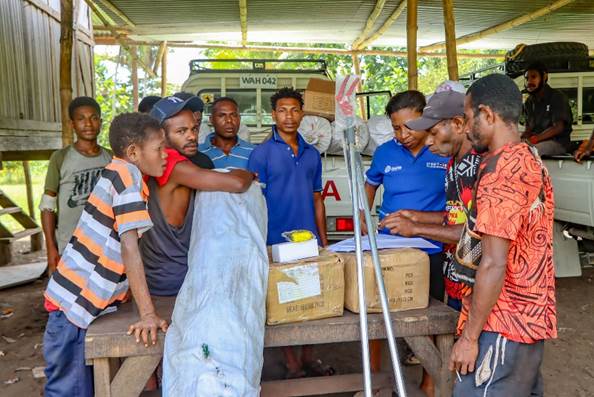 The distribution of quality inputs by the Programme will continue to cover other farmer groups in the Programme’s implementation sites in East Sepik and Sandaun provinces. The EU-STREIT PNG, as a UN Joint Programme (FAO as leading agency, and ILO, ITU, UNCDF and UNDP as partners), is the largest grant-funded Programme of the European Union in the country and the Pacific region.
Being implemented in close cooperation with the National and provincial government institutions, research entities, civil society organizations, and private sector enterprises, the Programme aims to help improve the lives of the people from East Sepik and Sandaun provinces, by focusing on increasing sustainable and inclusive economic development of rural areas through improved economic returns and opportunities from cocoa, vanilla and fishery value chains while strengthening and improving the efficiency of value chain enablers, including the business environment, and supporting sustainable, climate-proof transport and energy infrastructure development.
The distribution of quality inputs by the Programme will continue to cover other farmer groups in the Programme’s implementation sites in East Sepik and Sandaun provinces. The EU-STREIT PNG, as a UN Joint Programme (FAO as leading agency, and ILO, ITU, UNCDF and UNDP as partners), is the largest grant-funded Programme of the European Union in the country and the Pacific region.
Being implemented in close cooperation with the National and provincial government institutions, research entities, civil society organizations, and private sector enterprises, the Programme aims to help improve the lives of the people from East Sepik and Sandaun provinces, by focusing on increasing sustainable and inclusive economic development of rural areas through improved economic returns and opportunities from cocoa, vanilla and fishery value chains while strengthening and improving the efficiency of value chain enablers, including the business environment, and supporting sustainable, climate-proof transport and energy infrastructure development. 
